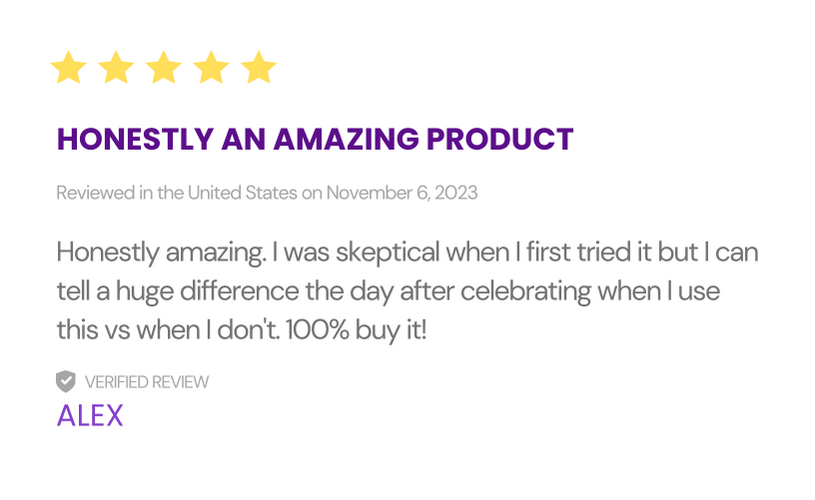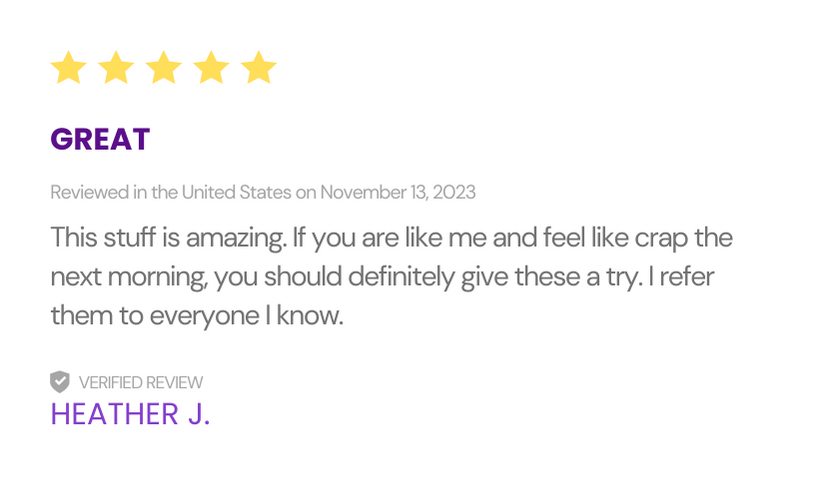.png)
4.6
Post-Celebration Wellness + Hydration Kits
$49.95
Purple Tree Labs is on a mission to enable health-minded social people to lead outstanding work, fitness and family routines. Celebrate good times, stay classy.
How To Take
Celebration Pills: Take to 2 to 4 pills before, during or (better) right after responsible drinking.
Hydration Packs: Add to 16 - 20oz ice water and enjoy! Your taste buds and body will thank you.
Ingredients
Pills: Dihydromyricetin DHM (Vine Tea extract), Milk Thistle, B Vitamins, Electrolytes, Willow Bark, Prickly Pear, Quercetin
Packs: Sodium, Potassium, Magnesium, Zinc, Chloride, Trace Elements, Vitamin B6, Vitamin B12, Vitamin C
Caution
This product will not prevent alcohol intoxication nor enhance sobriety. For adults only. Not for pregnant or nursing women. Do not take this product if you are allergic to aspirin. Consult a physician if taking medications or have a medical condition. Keep out of reach of children. Do not drink and drive.
.png)
.png)
7,000+ Reviews For a Reason
22,000,000
DOSES SOLD
OVER 7,000
REVIEWS
BORN IN
SAN DIEGO CA
DOUBLE TESTED
FOR QUALITY
MONEY-BACK GUARANTEE














































